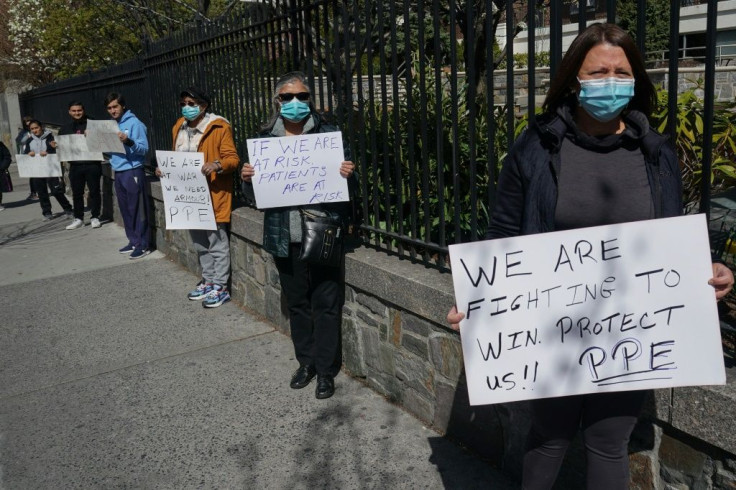Coronavirus Can Spread Through Talking And Breathing, New Scientific Study Reveals

One of the keys to defeating the COVID-19 pandemic is to learn everything about it. This includes everything from its DNA genome to the mechanisms that have allowed it to spread from a seafood market in Wuhan, China, to almost every country in the world.
According to Dr. Harvey Fineberg, chairman of a committee with the National Academy of Sciences (NAS), one of those mechanisms is the simple act of breathing.
Dr. Fineberg and the NAS conducted a study, which indicated that it takes much less than a sneeze or a cough to spread it. He said in a letter to the White House on Wednesday, “While the current [coronavirus] specific research is limited, the results of available studies are consistent with aerosolization of virus from normal breathing."
Fineberg injected some wry humor in an interview with CNN when he said he would begin wearing a mask when grocery shopping. He added, "I'm not going to wear a surgical mask, because clinicians need those. But I have a nice western-style bandana I might wear. Or I have a balaclava. I have some pretty nice options."
The practice of “social distancing” by 6 feet (about 2 meters) is the best-known prevention method to avoid contracting the coronavirus. Dr. Fineberg’s research is challenging the 6-foot distance under certain conditions.
The White House letter pointed out research by the University of Nebraska shows that genetic material from the virus was found in patients' rooms more than 6 feet away from the patients. Fineberg explained that the tiny virus can become entrapped in aerosolized droplets that can linger in the air indefinitely and potentially infect someone who walks by later.
He went on describing how long the coronavirus can remain in the air saying it was dependent on several factors, including how much virus an infected individual puts out when breathing or talking, and on the amount of circulation in the air.
Stressing that proper ventilation was a factor, Fineberg said, "If you generate an aerosol of the virus with no circulation in a room, it's conceivable that if you walk through later, you could inhale the virus. But if you're outside, the breeze will likely disperse it." He added that coronavirus is not as infectious as measles or tuberculosis.
One face of the battle against COVID-19 is Dr. Anthony Fauci, a key member of the White House's coronavirus task force. He told CNN Tuesday that recommending broad use of masks in the US to prevent the spread of coronavirus is under "very active discussion" by the group.
On Thursday, President Donald J. Trump announced he had signed a Defense Production Act order for face mask producers to ramp up production. “Hopefully they’ll be able to do what they are supposed to do,” he said.
© Copyright IBTimes 2025. All rights reserved.





















